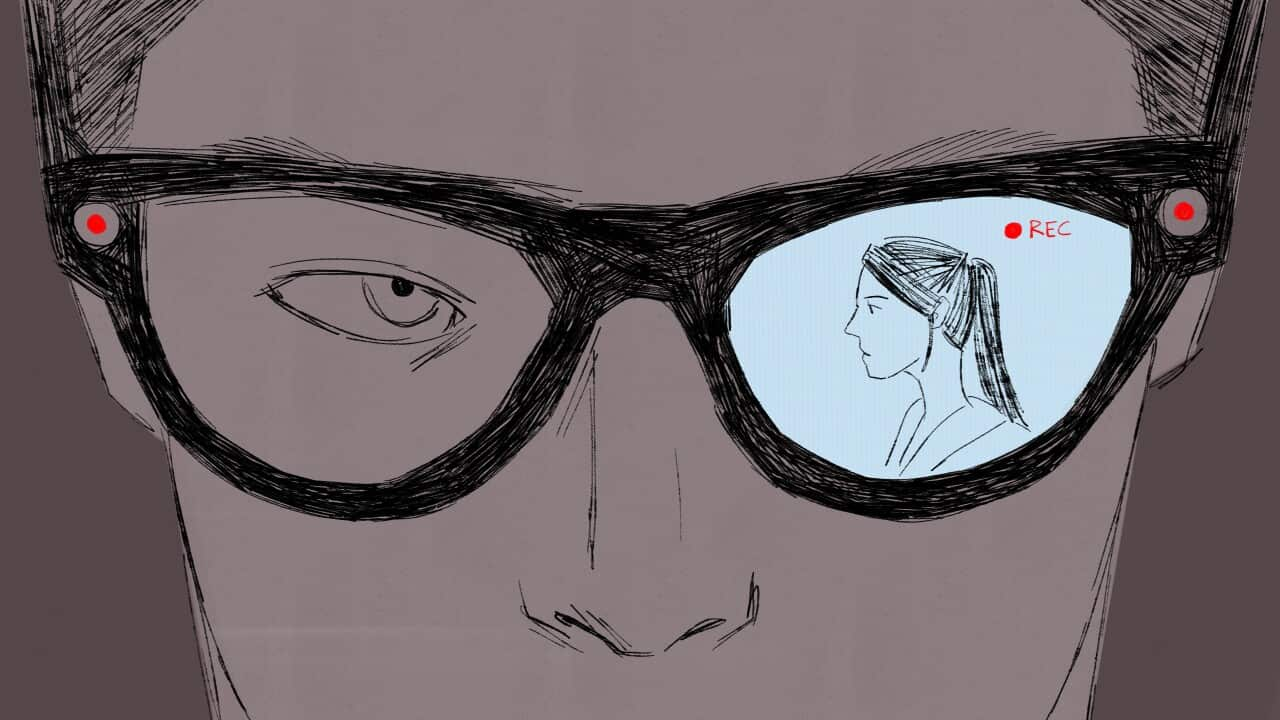It's an age-old custom — women taking the last name of their partner when they tie the knot.
But times are changing, and some Australians say the "stone age" tradition is not one they want to follow.
The Feed spoke to several couples; some are flipping the tradition by having the man take the woman's surname, some couples choose to start anew, and some agree to disagree.
The innovative way around tradition
Jade, 29, started dating a man with the same surname as her ex. They've constructed a new name as their marriage approaches.
"I don't really resonate with his last name … and he doesn't resonate with my last name," Jade told The Feed.
"We thought: we are quite quirky people, so let's make up something that really represents us as a couple, as people. So we've come up with the last name Strange."
Jade and her partner's parents are supportive of their decision.
"My parents are totally on board with it ... and my partner's parents, they're not too worried — they've got plenty of other kids that can carry on the last name."
A long and patriarchal tradition
Practices around last names differ across cultures — Vietnamese women keep their family name when they marry, it's illegal for women to take their husband's names in Quebec, Canada and Greece, and while some Australians question taking their partner's name, a majority of women still do.
The practice of women taking their husband's names stems back hundreds of years when women in England had no legal identity and were under the authority of their husbands — or their fathers before marriage. The idea was also commonplace in Europe and North America.
By the 1970s, as second-wave feminism marked shifted views on women's rights, an increasing number of college graduate women in the US started keeping their surnames.
In the 90s, this all changed again: more women in this age bracket took their husband's name as societal pressures and conservative social views re-emerged.
'A stone age tradition'
When the topic of marriage came up between Kerry, 27, and her partner, she said she'd like to keep her surname. But the suggestion soured the conversation and she realised they may not be compatible.
Kerry thinks it's "a bit stone age" to assume women would take their partner's surnames. She said losing her surname would mean losing a part of herself and connection to family.

Kerry wants to keep her own surname when she gets married as she feels a strong sense of identity attached to it. Source: Supplied
She also wants her children to share her surname — a potential point of contention in relationships where couples choose to keep their own names.
"If I have kids one day, it feels weird to me to just completely give up [my surname]."
The couple would later split, but the conversation stuck with her.
Are more women keeping their surnames?
For Kerry, if her partner had acknowledged the conversation around surnames rather than assuming she would take his, it would have felt a kind of compromise.
"I do feel like the compromise is always expected to come from the women's part a lot of the time."
Data for Australia is scarce, but associate professor Yvonne Corcoran-Nantes from Flinders University told the ABC in 2016 that over 80 per cent of women took their husband's name after marriage.
Similar statistics have been reported in the US and the UK: A 2023 report from the US-based Pew Research Center found about 80 per cent of women out of 2,437 Americans in heterosexual marriages took their husband's name, while a 2019 UK survey referenced in Sage Journals found almost 90 per cent did so.
Dr Beatrice Alba, a Deakin University lecturer, psychologist and researcher in personality psychology and sexism, says the expectation that women take men's surnames can be harmful by reinforcing existing gender stereotypes.
"The concern is that as long as we believe that these stereotypes are real — and that women and men are fundamentally different and should have different roles just because of their gender — then it's likely to be problematic in a range of areas that might not be necessarily obvious," Alba says.
'A stubbornness to adhere to old fashioned norms'
Alba believes both women and men should make a conscious choice around surnames.
"A way to really express a strong commitment to gender equality and feminism is for women to actually consciously choose a surname of their choice if they wish to not perpetuate that patriarchal tradition. It's something men can do as well," she says.
But Alba says that for some people, not taking the husband's name can be seen as showing less commitment to the relationship.
"There's still a really big stubbornness in the way that people are adhering to traditional romance and all the old-fashioned norms," she says.
Alba believes some people who hold traditional ideas around surnames and other romance norms, might also end up following "similar stereotypes in their domestic lives, where women, even when they're working full time, might end up doing more domestic labour, for example, than their partners."
It can also cause conflict for parents who keep their surnames to decide which surname their children should take, Alba says.
"It's probably quite challenging for women to assert — or they might not even desire to assert — that expectation that children might take their names."
Some have worked around that by giving their children a double-barrelled surname that includes the names of both parents.
Men flipping the script
When Liz Tripodi's father died just a week before her marriage, her then fiancé suggested he would take her name.
She was already keen to keep her surname for her professional identity.

Liz's husband took her name to honour her father. Source: Supplied / Tizia May
He took her Italian surname: he had a long Greek surname that many found difficult to pronounce. But, part of this decision was also to honour both families' cultural backgrounds, such as baptising their children in the Greek Orthodox church.
"We've made some decisions that fit our family dynamic and keep the culture and the traditions alive from both cultures."
Their children also use her surname.
But while some couples flip the script, Alba says research indicates women in heterosexual relationships still value traditional marital ideas, such as that it should be the male who proposes; being walked down the aisle by their father; the white dress.
"I find it staggering that so many young people still really believe in this," Alba says.
"Some traditions are hard to break."





